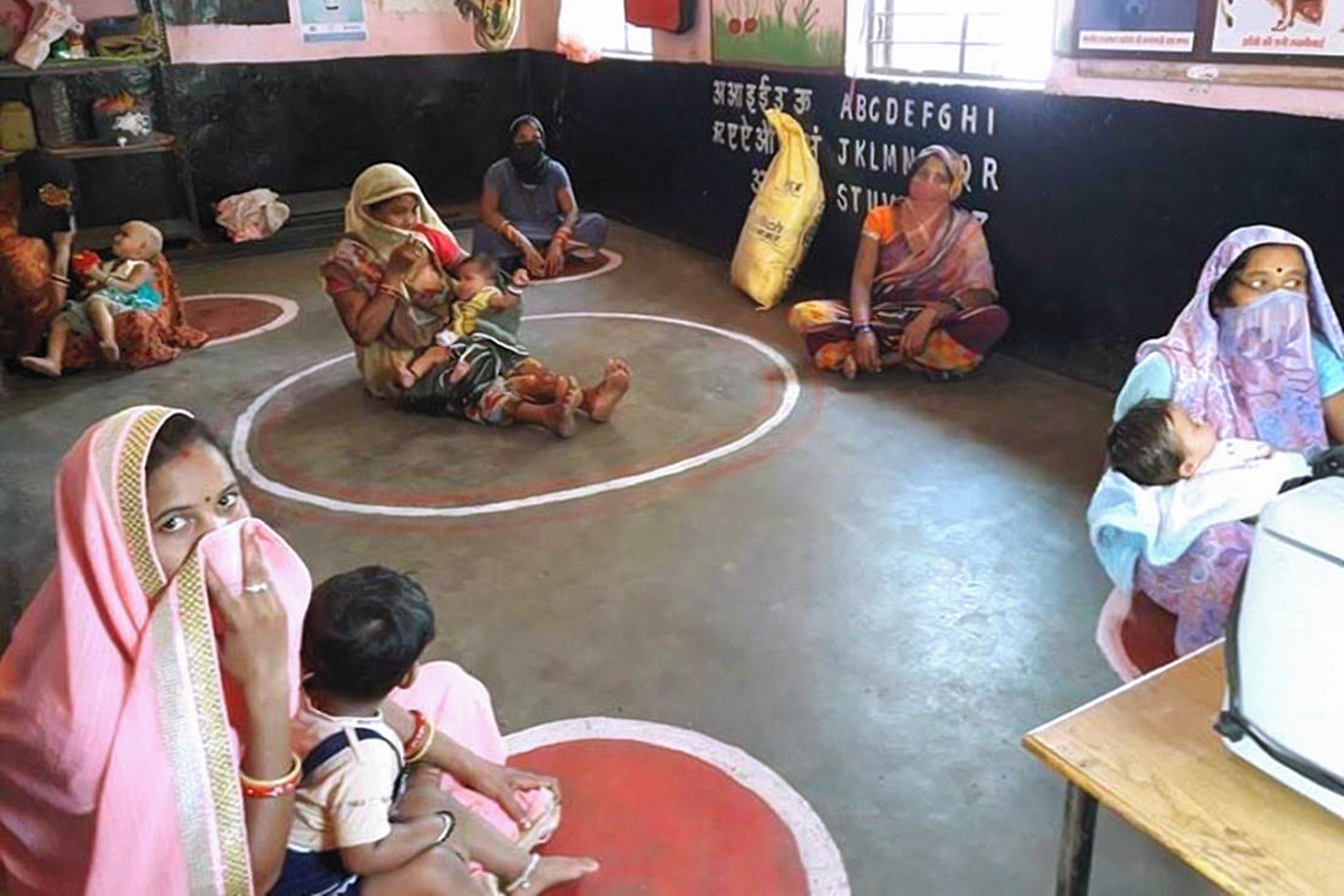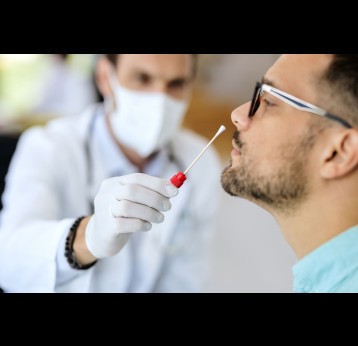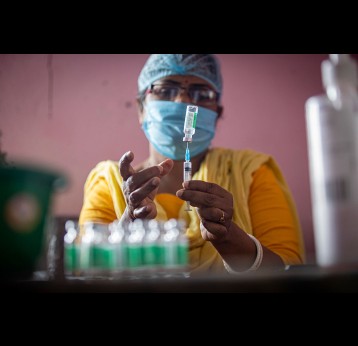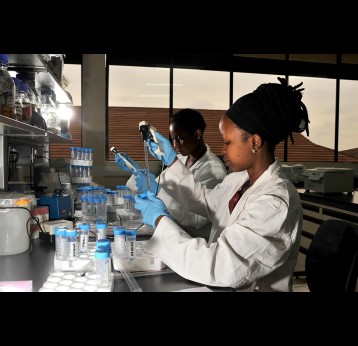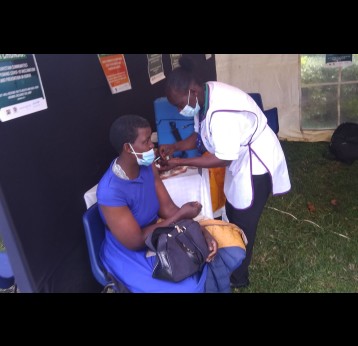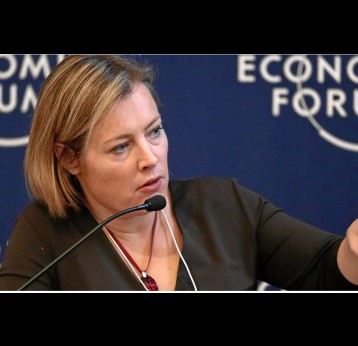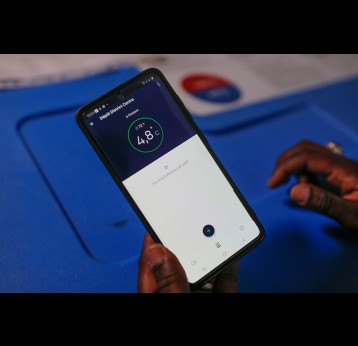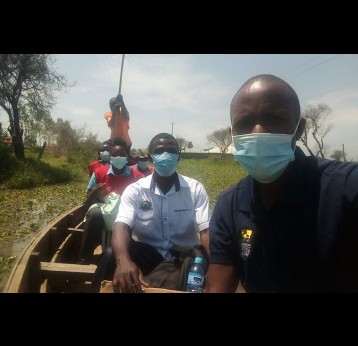-
At least 13.5 million people to miss out on vaccinations due to postponement of campaigns and interruptions in routine vaccinations, with millions more likely to follow
-
Gavi, the Vaccine Alliance is urgently providing support for countries’ COVID-19 response and in addition is ready to support mass vaccination campaigns once lockdowns finish
-
Dr Seth Berkley: "The legacy of COVID-19 must not include the global resurgence of other killers like measles and polio."
Geneva, 3 April 2020 – Disruptions caused by the COVID-19 pandemic are likely to have a devastating impact on immunisation programmes in the world’s least-developed countries, according to a new analysis by Gavi, the Vaccine Alliance. Immediate delays to vaccination campaigns and routine introductions will mean at least 13.5 million people in 13 of the world’s least-developed countries will not be protected against diseases like measles, polio and human papillomavirus (HPV), with millions more likely to follow.
The Vaccine Alliance and its partners are urgently working to keep immunisation programmes running, however at least 21 low- and middle-income countries are already reporting vaccine shortages as a result of border closures and disruptions to air travel.
So far, 14 major Gavi-supported vaccination campaigns against polio, measles, cholera, HPV, yellow fever and meningitis have been postponed, as have four national vaccine introductions. Collectively these would have immunised more than 13.5 million people. The number of people missing out on vaccines is likely to rise substantially as Gavi expects a significant proportion of planned vaccine campaigns to be postponed in the coming months, with routine immunisation programmes also severely impacted as key staff are redeployed and communities observe physical distancing.
Gavi is redirecting 10% of its funding for health systems for immediate use, until more substantial support starts to flow, towards supporting countries’ response to COVID-19. This includes support for personal protective equipment (PPE), diagnostics, training and communications campaigns. Gavi is ready to work with Alliance partners to support mass immunisation campaigns once emergency measures are lifted and, assuming successful fundraising for the 2021-25 period, help repair health systems, boost vaccine coverage rates and protect the next generation against disease in the coming years.
“The world’s poorest countries need the help of the international community more than ever to help mitigate the worst impacts of the COVID-19 pandemic and to ensure that they are not hit by an even higher death toll from preventable diseases which can further overwhelm the health systems,” said Dr Seth Berkley, CEO of Gavi, the Vaccine Alliance.
“Our Alliance is working hard to prepare health systems and health workers in these countries for the pandemic but we are also doing everything we can at the same time to prevent further loss of life by ensuring routine immunisations, where possible, continue and that mass vaccination campaigns take place once the immediate crisis is over. Children missing out now must not go their whole lives without protection from disease. The legacy of COVID-19 must not include the global resurgence of other killers like measles and polio.”
A Gavi analysis of Imperial College modelling suggests that without any mitigation strategies, COVID-19 could lead to 12.9 million deaths in the 73 Gavi-supported countries, compared with 0.9 million deaths if suppression measures are taken. The latter will be a huge challenge to implement in impoverished communities which cannot afford long periods at home.
In addition to Gavi’s immediate support for health systems in the countries where it is active, Gavi is also helping the development of COVID-19 vaccine candidates, as well as supporting efforts to manufacture, purchase and deliver vaccines to those who need them once they are available.
On Monday 30 March the WHO’s Strategic Advisory Group of Experts (SAGE) on Immunization recommended that all one-off preventive vaccination campaigns should cease as countries focus on a COVID-19 response, however routine immunisation should continue where possible. The Global Polio Eradication Initiative (GPEI) has paused all polio vaccination campaigns.
Routine immunisation, including vaccines against polio, continues in most countries for now, though mainly in fixed facilities with strict guidelines on hygiene and physical distancing. With the expansion of nationwide lockdowns across the developing world it is likely more and more routine immunisation programmes will close temporarily. The suspension of outreach activities, in which health workers visit communities to proactively offer routine vaccinations, is likely to have an immediate impact on vaccine coverage.
Measles outbreaks are currently ongoing in several countries, including the Democratic Republic of the Congo (DRC) and the Central African Republic. The DRC outbreak is currently the world’s largest, affecting over 300,000 people since it started in 2019, with more than 6,000 deaths – nearly three times as many as resulted from the Ebola outbreak in the country.
The Vaccine Alliance brings together developing country and donor governments, the World Health Organization, UNICEF, the World Bank, the vaccine industry, technical agencies, civil society, the Bill & Melinda Gates Foundation and other private sector partners. View the full list of donor governments and other leading organizations that fund Gavi’s work here.
COVID-19 related
View allHow long after I get COVID-19 will I test negative?
Testing positive for COVID-19 – even without symptoms – can be disruptive to daily life, but how long should we expect to test positive for?
First published on 29 October 2021, updated on 13 September 2022
The COVAX Facility is seeking expressions of interest from the subject matter experts to join the COVAX Independent Product Group. The Independent Product Group (“IPG”) is established to provide scientific advice on COVID-19 vaccines and…
Q&A: Science ‘needs to listen to African voices’
Public speaking a lifelong skill for scientists. Drive behind research should come from grassroots. Science and art merge together in field of communication.
How did Kenya surpass its 2021 COVID-19 vaccination target?
Kenya was aiming to reach 10 million people with COVID-19 vaccines by the end of December 2021. Thanks to a clear strategy, COVAX support and the hard work of thousands of health workers, they reached their target.
Could mRNA vaccines protect against HIV?
Moderna has begun a trial with an experimental HIV vaccine based on the same technology underpinning its COVID-19 vaccine.
Financial Times journalist and author Gillian Tett discusses her new book, Anthro-Vision: How Anthropology Can Explain Business and Life.
The Equity Agenda in Fourth Industrial Revolution Healthcare Technology
The COVID-19 pandemic has demonstrated the power of innovative Fourth Industrial Revolution (4IR) technologies in healthcare systems. Unless these technologies are designed with equity at their core, we risk leaving some people even further…
Faced with the many disease threats posed by repeated, calamitous floods, Nyando in western Kenya needs its health services more than ever. But longer-term resiliency will require more than just a shot in the arm.

